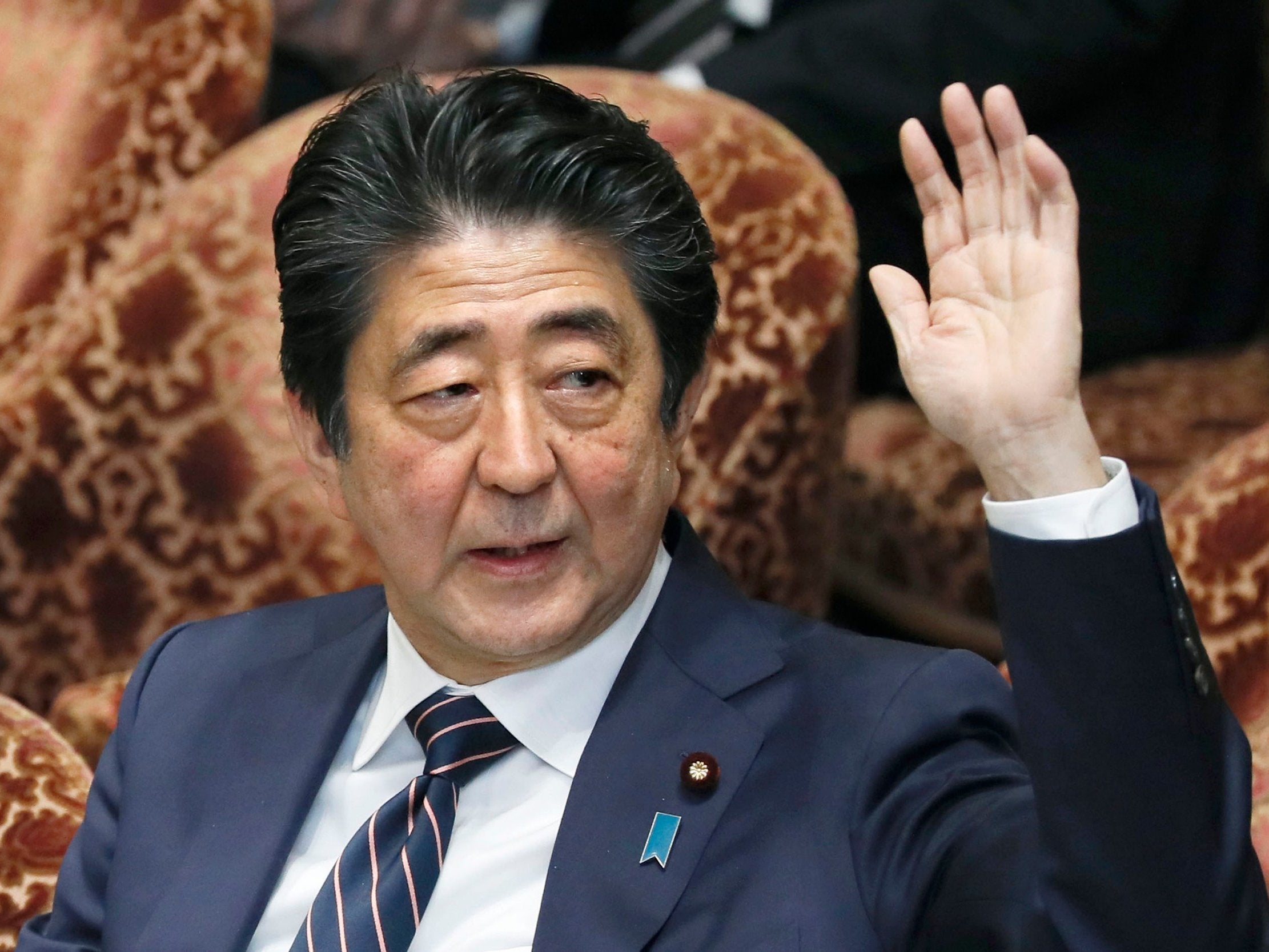Japan nominated Trump for Nobel Peace Prize 'after White House asked them to'
US president claims he received 'beautiful copy' of letter Japanese prime minister sent to Nobel committee
Your support helps us to tell the story
From reproductive rights to climate change to Big Tech, The Independent is on the ground when the story is developing. Whether it's investigating the financials of Elon Musk's pro-Trump PAC or producing our latest documentary, 'The A Word', which shines a light on the American women fighting for reproductive rights, we know how important it is to parse out the facts from the messaging.
At such a critical moment in US history, we need reporters on the ground. Your donation allows us to keep sending journalists to speak to both sides of the story.
The Independent is trusted by Americans across the entire political spectrum. And unlike many other quality news outlets, we choose not to lock Americans out of our reporting and analysis with paywalls. We believe quality journalism should be available to everyone, paid for by those who can afford it.
Your support makes all the difference.Japan’s prime minister has refused to deny claims he nominated US president Donald Trump for the Nobel Peace Prize.
Mr Trump said on Friday that he had received a “beautiful copy” of a letter sent by Shinzo Abe to the Nobel committee.
The comment sparked criticism in Japan and Mr Abe was questioned about whether he had done so in parliament.
Japanese newspaper Asahi Shimbun also claimed the Japanese prime minister had nominated Mr Trump at the US president’s request, citing unidentified government sources.
In response, Mr Abe said: “In light of the Nobel committee’s policy of not disclosing recommenders and nominees for 50 years, I decline to comment.”
However neither the prime minister nor his spokesman denied Mr Trump’s comment.
Mr Abe said “I never said I didn’t” nominate Mr Trump, in response to a follow-up question by Yuichiro Tamaki, a lawmaker for the opposition Democratic Party for the People.
In a tweet on Monday, Mr Tamaki said he was concerned such a nomination would “send the wrong message to North Korea and the rest of international society” given the lack of progress on various issues with North Korea.
In response to Mr Tamaki’s questions in parliament, Mr Abe praised the US president, saying he “has been decisively responding toward resolving North Korea's nuclear and missile problems, and last year he held historic US-North Korea summit talks”.
Mr Abe added that Mr Trump had also passed on Japan’s concerns about past abductions of Japanese citizens by the North to North Korean leader Kim Jong Un.
“He and the entire White House also actively cooperated in resolving the issue,” he said.

“I highly praise President Trump’s leadership.”
The government’s top spokesman Yoshihide Suga also refused to comment further.
Former US president Barack Obama was awarded the Nobel Peace Prize in 2009, his first year in office, for laying out a US commitment to “seek the peace and security of a world without nuclear weapons”.
Mr Trump complained Friday that Mr Obama was there “for about 15 seconds” before he was awarded the prize.
The deadline each year for nominations is midnight on 31 January.
According to the website of the Nobel committee, there are 304 candidates for the Nobel Peace Prize for 2019. It said 219 are individuals and 85 are organisations.
Mr Trump’s comments on Friday drew speculation that South Korean president Moon Jae-in might have been the one who nominated him.
However, Mr Moon’s spokesman Kim Eui-kyeom said he had not, and that he was unlikely to do so.
Associated Press contributed to this report

Join our commenting forum
Join thought-provoking conversations, follow other Independent readers and see their replies
Comments